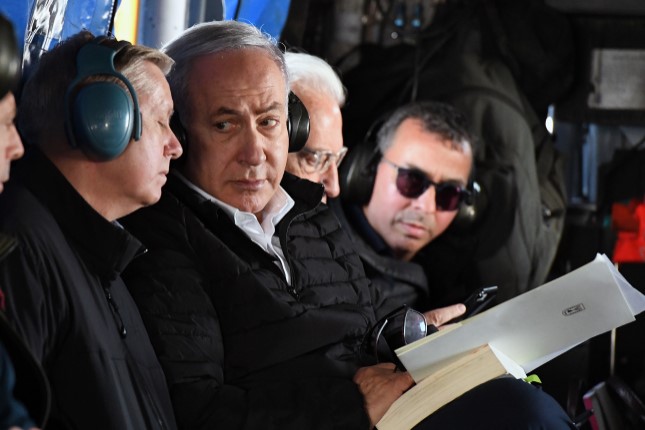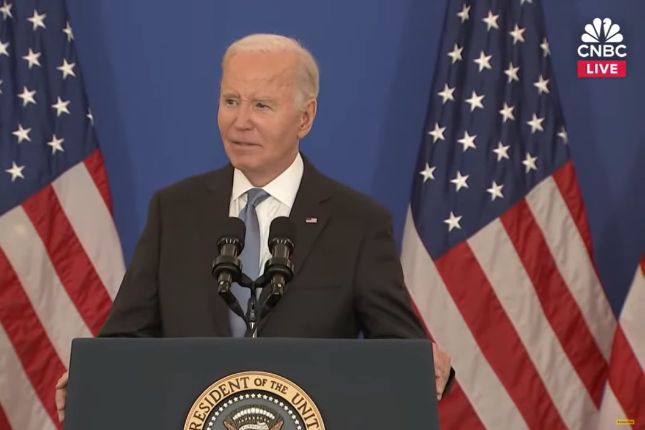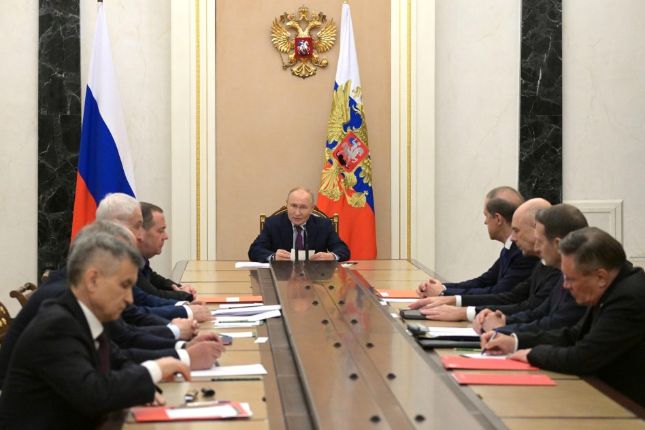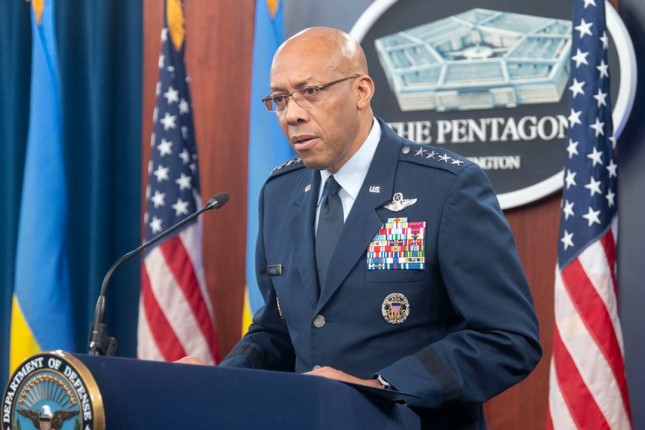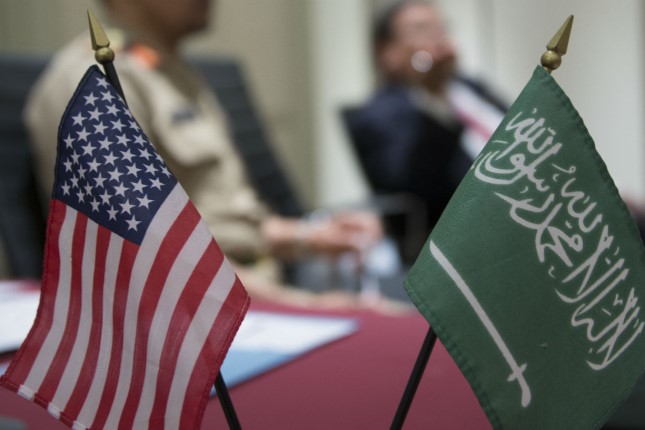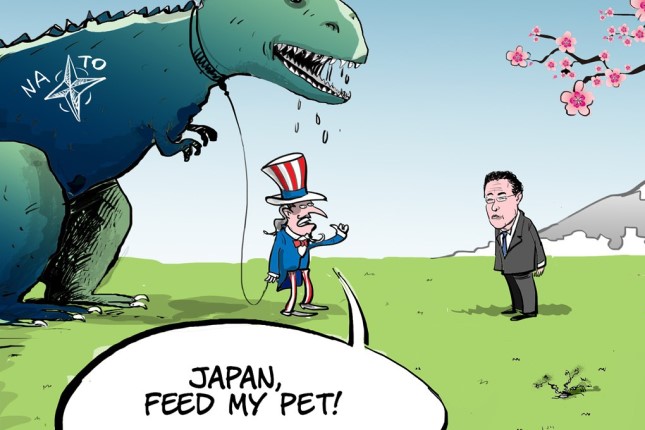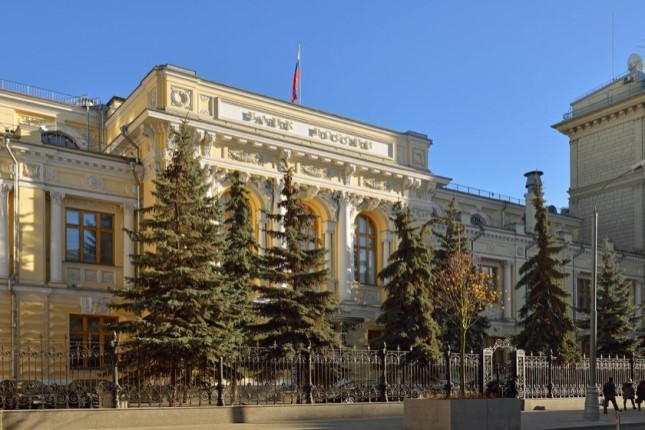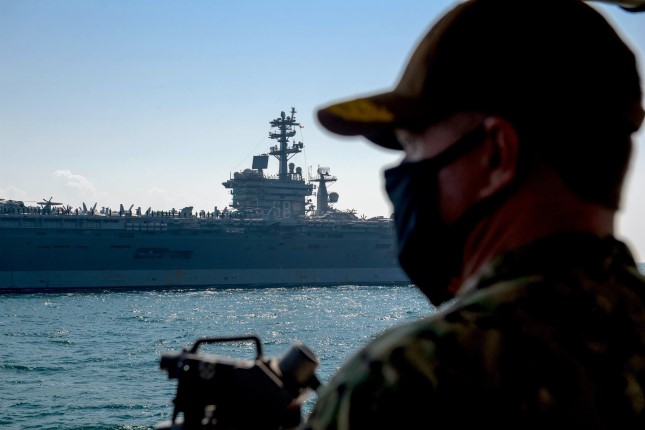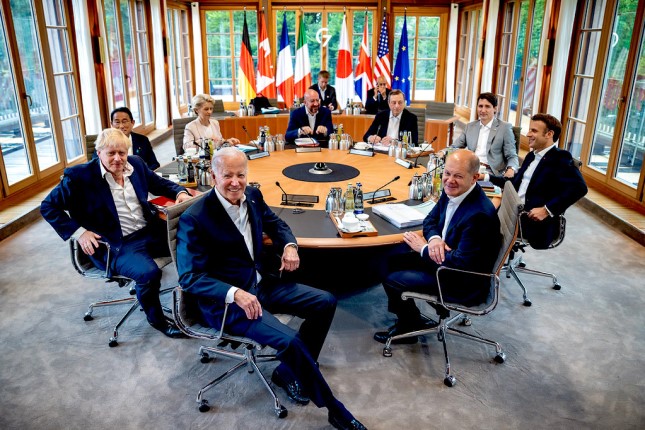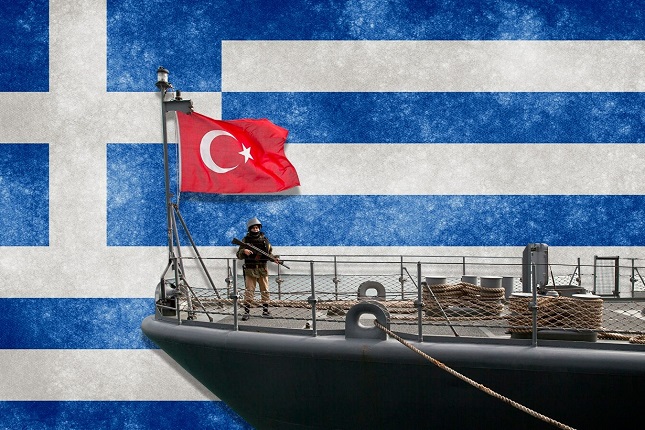Israel is in trouble. Its military-strategic doctrine — predicated on the use of massive force to subjugate the Arab population — has resulted in successive massacres intended to instill fear in the hearts of all Arabs. In his book The Revolt, former Israeli Prime Minister Menachem Begin admitted this brutal practice was official Zionist policy.
But times have changed, and Israel does not scare Arabs anymore.
The 2006 Israel-Hezbollah War, also known as the July war in Lebanon, was the watershed, as were the recent successive Israeli wars in Gaza. The perception of the Israeli army has been altered beyond repair.
Gone are the days when Arabs accepted defeat in a matter of hours at the hand of the Israeli army. Also gone are the days when Arab populations harbored little faith in Arab fighters. Scenes of those fighters with their hands over their heads in surrender belong to the 1967-era of the Six Day War, not today.
In July 2006, Arab fighters reversed the trend by instilling fear, not only in the hearts of Israeli soldiers, but also in the hearts of Israelis.
A Hezbollah cross-border raid on July 12, 2006, left three IDF soldiers dead, with two other Israeli soldiers taken by Hezbollah to Lebanon. Five more were killed in Lebanon, in a failed rescue attempt. The IDF launched a ground invasion of Southern Lebanon, imposing an air and naval blockade, while Hezbollah continued to launch rockets into northern Israel and engage the IDF in guerrilla warfare.
After a U.N. Security Council resolution backed by both Israeli and Lebanese governments in August, the conflict ended with the Lebanese army deployed in Southern Lebanon, the blockade lifted, and by October 2006, most Israeli troops had withdrawn from the country.
Not Spooked by PLO
Israel was not frightened of Lebanon when the Palestine Liberation Organisation (PLO) had its base there after the PLO and its Fatah brigade arrived in 1971 following expulsion from Jordan.
The PLO was a menace to Israel, but did not pose a threat. Its leader, Yasser Arafat, never developed a strategy to confront Israel and his military commanders were woefully unsuccessful in devising a strategy of resistance. Arafat’s mind was more on diplomacy and U.N. forums.
It has been repeatedly predicted that Israel would launch another war after the 2006 Israel-Hezbollah War, seeking revenge for its humiliating defeat in the 34-day conflict.
It was said there was no way Israel could afford to let the results of the war stand. But it hasn’t happened.
In my youth in Lebanon, Arabs were genuinely scared of Israel. They were misled to believe the Israeli army was invincible and that resisting the Israeli occupation forces was tantamount to suicide. Two factors contributed to this myth among the Arabs.
Arab regimes promoted the notion that Israel’s army and intelligence organizations were uniquely powerful and omnipresent, and that no reasonable person would contemplate defying them or trying to defeat them. Arab governments wanted their populations to fear Israel to minimize the potential of escalation or confrontation with the Israeli army.
Arab rulers’ first priority was — and remains — the stability of their regimes. I remember, growing up, how Arab media would publish long articles on the successes and sophistication of Israeli intelligence, or about the Israeli army’s advanced weaponry. They wanted Arabs to give up on the belief in resistance.
Political and academic literature also pushed this notion of Israel’s invincibility.
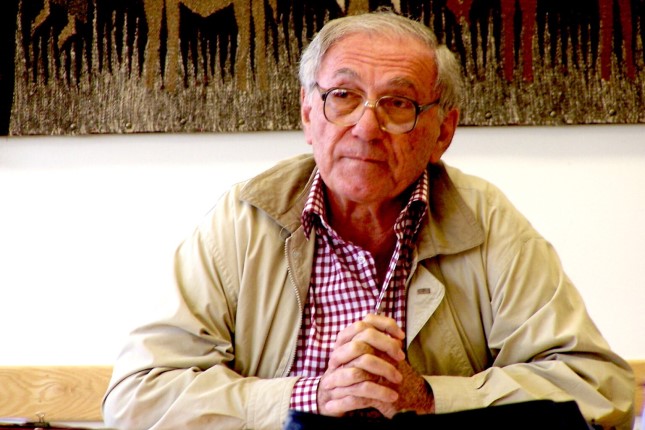
Sadik Al-Azm in 2006. Photo: Bgadsby / Wikimedia Commons / Public domain.
Sadiq Al-Azm’s Self Criticism After the Defeat, published after the 1967 War, gave the impression that civilizational, scientific and cultural requirements for victory against Israel were impossible to meet, for now.
The third Arab–Israeli War was fought between Israel and a coalition of Arab states, primarily Egypt, Syria, and Jordan, from June 5 to 10, 1967.
Al-Azm argued a broad and significant transformation of Arab society at all levels was required before even contemplating confronting the Israeli military. Al-Azm and his ilk refused to regard the defeat as purely a military one, which it was, first and foremost.
Those intellectuals exaggerated the historical significance of the defeat. After all, Germany had suffered a devastating defeat in World War I but rose again by the 1930s.
PLO Ineptitude & Lebanese Volunteers
The PLO in Lebanon, under the clownish leadership of Arafat, could be described as schizophrenic. Arafat would wildly exaggerate the PLO’s capabilities and engage in triumphalism over Israel and its army.
However, the PLO’s actual performance in the face of Israel’s military was largely abysmal. The PLO and its Lebanese allies benefited from support of many Arab and international countries, especially during the Cold War. Yet these resources were not properly used and the PLO lacked a strategic acumen dealing with Israeli’s military threat in Lebanon.
The organization would preach that it was feasible to confront and even defeat the Israeli occupation army, but this message contrasted deeply with the reality of the PLO’s own performance. It fell well below the high expectations Arafat and his comrades had planted in the minds of Arabs. This weakened support for the Palestinian cause among the local population prior to the Israelis’ 1982 invasion.
Invasion Galvanized Resistance
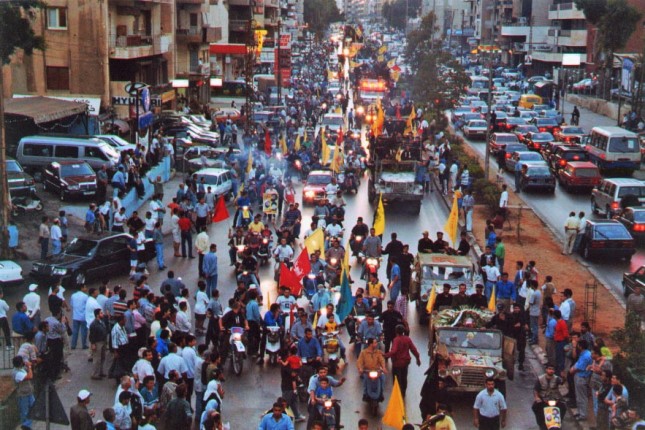
Hezbollah parade following the end of Israeli occupation of Southern Lebanon, May 2000. Photo: Khamenei.ir / Wikimedia Commons / CC BY 4.0.
All that changed after 1982. At a time of defeatism, demoralization and political depression, when it seemed the Israeli occupation had succeeded in extinguishing the flame of resistance among Lebanese and Palestinians in Lebanon, Lebanese volunteers rose to chart a new course of battle against Israeli occupation.
Many of these volunteers previously trained within the PLO. The Lebanese volunteers began to slowly escalate national resistance, a process that ultimately led to a humiliating withdraw of Israeli forces from Lebanese territory in 2000.
In May that year, Israel pulled back from Southern Lebanon to the international border line in compliance with U.N. Security Council Resolution 425.
In the ranks were communists, Syrian nationalists and Islamists — what later became Hezbollah, and the Amal movement. Hezbollah established a pattern of military confrontation with Israel that broke with all established norms since the 1948 Israel-Arab War, which followed Israel’s declaration of independence.
It was a combination of factors that brought Hezbollah to a level of military skill and sophistication. I don’t subscribe to the notion that it was Iranian military and financial support that shaped the effectiveness of Hezbollah.
The PLO received military and financial support from an array of countries, yet that did not translate to an effective military force. Hezbollah managed to utilize similar resources in a very effective way and learned from the experiences of the PLO by not resorting to bombastic statements, instead working in total secrecy. It won and preserved public support for its operations against the Israeli army.
The Hezbollah leadership contrasted sharply with that of the PLO. The PLO was often in conflict. Even within the Fatah movement of Arafat, there was constant bickering and infighting and even clashes among the various factions.
Hezbollah established a unified command and assigned individuals the task of implementing the strategy of the leadership. Their military communiques reported developments on the ground as accurately as possible. That created credibility for the movement locally, something the PLO never enjoyed.
Israel Lobbies Against Formidable Threat
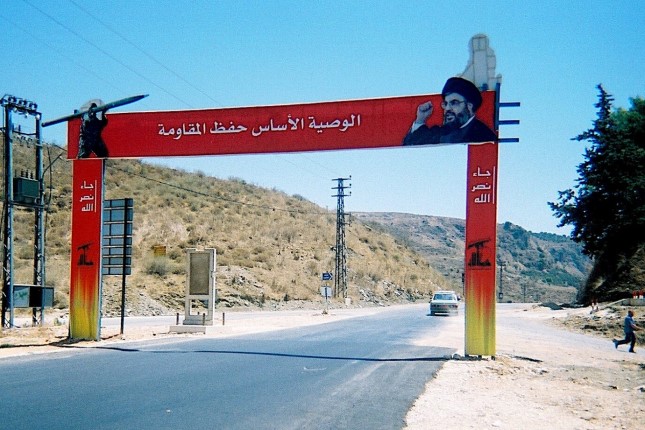
Sign erected after the 2006 Israel–Hezbollah War in Southern Lebanon displays rockets and Hezbollah leader Hassan Nasrallah. Photo: Eternalsleeper / Wikimedia Commons / Public domain.
Hezbollah was able to forge a formidable military force. It combined complete secrecy in military operations, an ability to read and predict Israeli army behavior, the utilization of advanced military devices and arms and the pioneering use of psychological warfare against Israel —something Arab armies never considered or used.
The organization was able to train its fighters to scare Israeli soldiers, instead of being conditioned to fear them. The fact that the Israeli army has now formed a special military unit to deal with the possibility of a Hezbollah encroachment into Galilee indicates a level of Arab military preparedness unknown among all Arab armies since 1948.
It is for this reason that Israel lobbies against Hezbollah worldwide and insists, typically, on classifying it as a terrorist organization. Any Arab forces who resist Israeli occupation are considered terrorist in the eyes of the West and Israel. There are Arab organizations, unfortunately and disturbingly, that have harmed civilians. But that pales in comparison with the record of Israel in murdering civilians, and on a large scale. Of course, this should not excuse the harming of civilians by any side.
Israeli remains in a conundrum. On the one hand, it wants to start a war to teach Hezbollah a lesson and revive its past military prestige. But it knows victory is far from being guaranteed. For that reason, Israel will continue to find reasons to lobby the West to disarm its opponents, chiefly in Palestine and Lebanon.
Main photo: Israeli Prime Minister Benjamin Netanyahu, second from left, between U.S. Sen. Lindsey Graham, at left, and U.S. Ambassador to Israel David Friedman, en route to the Golan Heights in March 2019 for an Israeli briefing on the military situation in the region © Matty Stern / U.S. Embassy Jerusalem.
Source: Consortium News.
